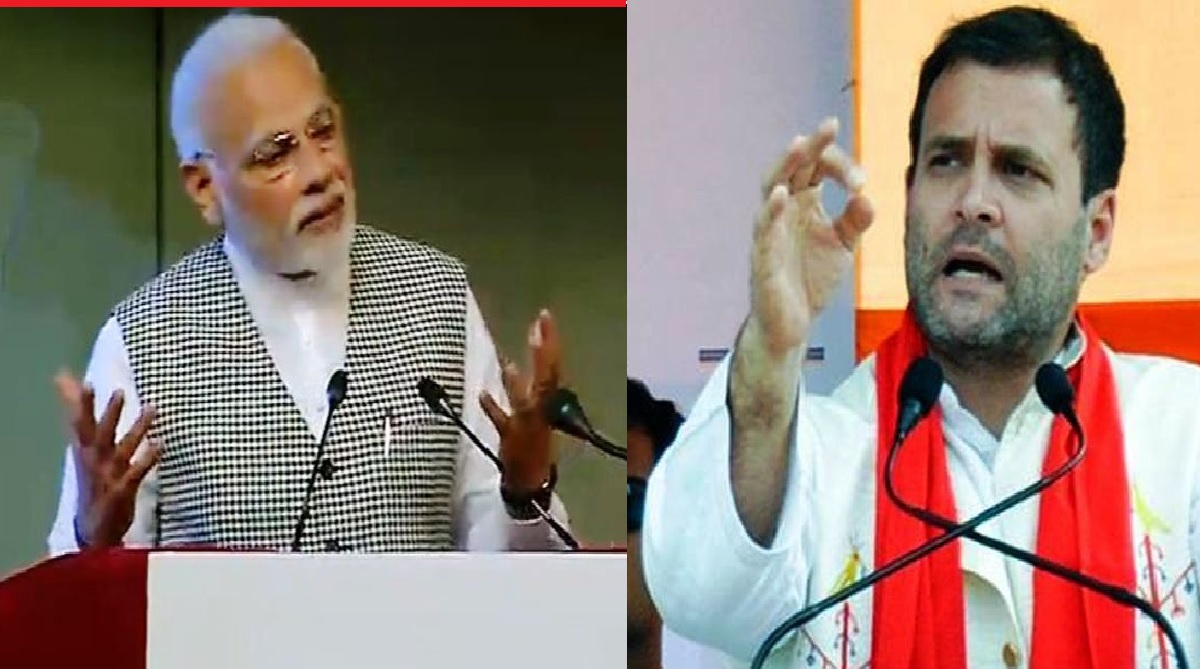A Narendra Modi-Rahul Gandhi face-off, last-minute switching of camps, allegations, counter-allegations, and caste equations make for a heady election cocktail in five states, but poll results remain as unpredictable as the climax of a Hollywood thriller.
The first phase of Chhattisgarh Assembly polls on Monday will kick off what is being seen as a semi-final before the general election that will decide how major political parties such as the BJP, Congress and BSP are positioned for alliances to fight the 2019 battle.
Advertisement
Political parties will battle it out in Chhattisgarh, Madhya Pradesh, Mizoram, Rajasthan and Telangana for 90, 230, 40, 200 and 119 seats respectively.
If the Congress manages to upset its dominant rival in these assembly polls, then it will be a big boost to the opposition for the Lok Sabha polls, while a good show by the BJP will energise its cadres and give a fillip to its hopes of retaining the power at the Centre in 2019.
In 2013, the BJP had won 165, 163 and 49 seats in the Hindi heartland states of Madhya Pradesh, Rajasthan and Chhattisgarh respectively, with the Congress securing 58, 21 and 39 seats.
In Telangana, the ruling K Chandrasekhar Rao-led Telangana Rashtra Samithi is seen to be going strong and will face contest from the Congress and the BJP.
Read | Chhattisgarh elections 2018: Some key facts on voters, contestants, constituencies
After winning 63 seats in the 2014 assembly polls, the TRS’ ranks swelled with members of rival parties joining it over the years. However, anti-incumbency and advancing of polls by KCR may throw up surprises.
In Mizoram, the Congress has been in power since 2008, while in Chhattisgarh and MP, the Bharatiya Janata Party (BJP) has been ruling for the last 15 years.
In the 2013 Chhattisgarh assembly polls though there was a difference of 10 seats between the BJP and the Congress, the difference between their vote share was just 0.75 per cent.
The contest in Chhattisgarh again promises to be a nail-biter as the ruling BJP is facing anti-incumbency, while the Congress is up against the challenge of the Ajit Jogi-Bahujan Samaj Party (BSP) tie-up.
Chhatisgarh’s Chief Minister Raman Singh had said last week that Jogi’s party, Janata Congress Chhattisgarh (JCC), would impact the Congress’ electoral prospects more than that of the BJP.
On the other hand, state Congress chief Bhupesh Baghel has said that the alliance would damage the BJP’s prospects more as out of the 10 seats reserved for the Scheduled Caste category, the Congress had won just one in the 2013 Assembly polls, while the BJP had emerged victorious on nine.
Jogi-Mayawati’s support base comprises mostly members of the SC community and if they get a few seats, it will be at the expense of the BJP, Baghel had said.
The BSP had won just one seat in the state last time, but had garnered a 4.27 per cent vote share, which if it sticks, could prove to be the decisive factor. Another key factor is that of smaller regional coalitions such as the one between the Gondwana Gantantra Party and the Samajwadi Party which had secured 1.5 7 per cent and 0.29 per cent votes in the last polls.
The Congress-BJP battle has become even more bitter in the state after Congress’ working president Ramdayal Uikey switched sides to the BJP.
Polling to the 90-member assembly will be held on November 12 and November 20, with the first phase covering 18 seats.
Read | Chhattisgarh Assembly Elections 2018: Complete list of BJP, Congress candidates | Key names in fray
In Madhya Pradesh, the contest looks even more tighter as the anti-incumbency is a big factor in the state with the Congress consistently doing well in the by-elections held in the last year-and-a half.
The BJP had in 2013 secured a 44.88 per cent vote share to Congress’s 36.38. A key statistic again here is that the BSP had bagged 6.29 per cent vote share. The BSP could prove to be a game-changer if it holds onto its clout.
Madhya Pradesh has also had its share of twists with several switching of camps by various leaders. Among the notable switches, Sanjay Singh Masani, the brother-in-law of Madhya Pradesh Chief Minister Shivraj Singh Chouhan and senior BJP leader Sartaj Singh joined the Congress, while Premchand Guddu, a Dalit leader, joined the BJP.
Rajasthan seems to be a different battleground from MP and Chhattisgarh as a key statistic here is that since 1998, the Congress and the BJP have won Vidhan Sabha elections alternately, neither able to retain power for consecutive terms.
In the 2013 Rajasthan assembly polls, the BJP had won 45.17 per cent votes, while the Congress had got 33.07 per cent.
However, voters here traditionally haven’t elected the same party to power for two terms in a row and hence anti-incumbency is a major player here than other states.
The results are hard to predict as with the Lok Sabha elections looming large the dynamics of the state polls is different this time and the final stretch of campaigning would be important.
Prime Minister Modi and Congress chief Gandhi are expected to criss cross the five states in a campaign blitz that is expected to be a trailer of their face-off during the Lok Sabha polls next year.
Polls in MP and Mizoram will take place on November 28, while assembly elections in Rajasthan and Telangana will be held on December 7.











